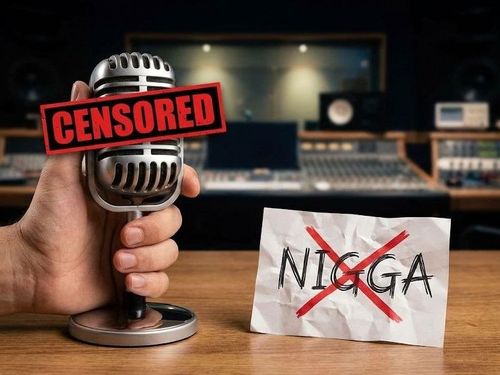In a year that has seen the interplay of digital communication and societal norms, the Oxford word of the year for 2023, "rizz," captures the essence of modern romantic appeal.
This term, broadly trending among Generation Z, reflects an individual's charm and relationship enticement.
"Rizz," an internet slang term denoting style, charm, or attractiveness, especially in attracting a romantic or sexual partner, has soared in usage among younger demographics.
Its definition aligns with the ability to captivate others, meaning a shortened form of the word "charisma."
Understanding the Dynamics of Rizz
While "rizz" may sound foreign to those beyond Generation Z, its commonness in digital spaces, particularly on platforms like TikTok, has generated billions of views under the hashtag.
Oxford University Press (OUP), responsible for the Oxford English Dictionary (OED), emphasizes its importance, describing it as a term used extensively online.
The term isn't merely a noun; it functions as a verb, as in the phrase "to rizz up," meaning attracting, seducing, or charming someone.
Essentially, it mirrors the concept of "game," representing the skill and charm deployed to attract others romantically or sexually.
Contextualizing the Shortlisted Words
The selection process for the word of the year involved eight candidates, each reflecting the ethos and preoccupations of 2023.
From "Swiftie" to "beige flag" and "situations," these words present snapshots of societal changes and emerging cultural occurrences.
Exploring the Shortlist:
- Beige flag: Indicates a partner or potential partner's trait, signifying boredom or lack of originality.
- Situationship: Denotes a relationship lacking formal or established status.
- Parasocial: Describes a one-sided, unreciprocated sense of intimacy a follower feels towards a well-known figure.
- Heat dome: Represents a persistent weather system trapping hot air in a specific geographic area.
- Swiftie: Refers to an enthusiastic fan of singer Taylor Swift.
- Prompt: An instruction guiding artificial intelligence or algorithms' generated content.
- De-influencing: The practice of discouraging specific product purchases or reducing material consumption through social media influence.
OUP outlines that words with draft definitions are under consideration for inclusion in dictionaries, subject to an assessment of their longevity, usage frequency, and breadth.
Rizz in Popular Culture and Personal Accounts
Attributed to YouTuber and Twitch streamer Kai Cenat, "rizz" gained momentum as Cenat merged the term into conversations with friends.

The usage of "rizz" continued its upward path throughout the year, even drawing attention from celebrities like actor Tom Holland, who humorously confessed to having "limited rizz."
While last year’s word, "goblin mode," contained unapologetically self-indulgent behavior, "rizz" presents a different theme, reflecting a change towards self-assurance and openness post-pandemic.
Casper Grathwohl, President at Oxford Languages, acknowledges this shift, highlighting how "rizz" mirrors a prevailing mood of increased self-assurance amid challenging times, showing a broader acceptance of internet culture in daily language use.
The Selection Process and the Broader Linguistic Landscape
The shortlist, carefully selected by Oxford language experts, underwent a public vote in November before experts made the final call.
This method aimed to engage the public in capturing the essence of the year’s linguistic trends.
In a parallel arena, Collins Dictionary crowned "artificial intelligence" as its word of 2023, reflecting the growing dominance of technology and its impact on society.
Merriam-Webster's Take: "Authentic" in an Era of Uncertainty
Merriam-Webster's word of the year, "authentic," mirrors a zeitgeist grappling with the concept's evolving definition.
The editor-at-large, Peter Sokolowski, notes a contemporary crisis surrounding authenticity, emphasizing society's increased valuation of the term amid doubt and misinformation.
Sokolowski points out that the heightened interest in "authentic" reflects a performative aspect of authenticity itself, indicating a system change in societal values and perception.
Diverse Linguistic Influences of 2023
Beyond "rizz" and "authentic," Merriam-Webster's roster of top words for 2023 includes terms such as "kibbutz," "implode," "deadname," "doppelganger," "coronation," "deepfake," "dystopian," "covenant," and "indict."
These words denote an array of societal events, from geopolitical incidents to literary and technological phenomena, underlining the diversity and depth of linguistic evolution in contemporary culture.
In essence, the linguistic field of 2023 reflects a multifaceted composition of societal changes, technological advancements, and the ever-evolving ways individuals navigate and express themselves in an interconnected world.
As language evolves, the selection of "rizz" as the word of the year signifies the intersection between digital culture and the ever-changing dynamics of human interaction and romance.
The joining of words chosen across different dictionaries underscores the rich composition of human experiences and the profound impact these experiences have on language evolution.
Wrapping Up Linguistic Trends of 2023
The lexical exploration of 2023 reflects a dynamic interplay of societal, cultural, and technological influences.
From the emergence of "rizz" containing modern romance to the broader themes encompassed by "authentic," each word selected presents a compilation of contemporary human experiences intelligently woven into the fabric of linguistic evolution.
As we bid farewell to 2023, these words serve as linguistic artifacts, immortalizing the unique variations and defining moments of an era marked by unprecedented change and societal self-reflection.




